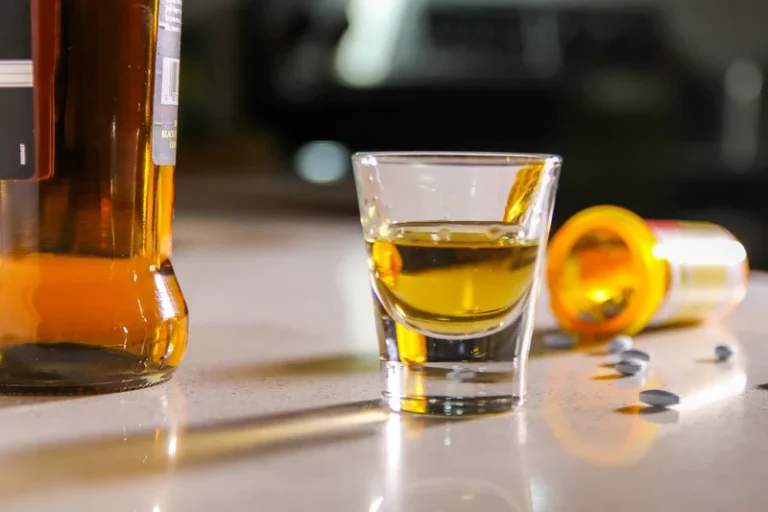
In a study of mostly female college students, symptoms of posttraumatic stress explained 55% of the variance in alcohol use (Edwards, Dunham, Ries, & Barnett, 2006). Another study found that students with PTSD showed a more hazardous pattern of substance misuse than other students, even those meeting criteria for other diagnoses (McDevitt-Murphy, Murphy, Monahan, Flood, & Weathers, 2010). Some have speculated that alcohol use among individuals with PTSD is a form of “self-medication” (Leeies, Pagura, Sareen, & Bolton, 2010) and this may be true for some college students as well (Read, Merrill, Griffin, Bachrach, & Khan, 2014). Alcohol use disorders are among the conditions most frequently comorbid with PTSD (Kessler et al., 1995). In one study, approximately two out of five students reported a binge episode (4 or more drinks for women, 5 or more for men) in the past two weeks (O’Malley & Johnston, 2002). There are various negative consequences of alcohol use among college students, including motor vehicular accidents, risky sex, sexual assault, fights, physical assaults, and fatalities (Hingson, Heeren, Winter, & Wechsler, 2005).
Interrupted Memories: Alcohol-Induced Blackouts
Early experience with trauma (e.g., a history of childhood sexual or physical abuse) also heightens a person’s susceptibility to severe PTSD symptoms as an adult. For example, victims of childhood physical and sexual abuse are at higher risk for developing PTSD symptoms following traumatic events in adulthood (Breslau et al. 1999). Ultimately, each veteran’s experience is unique, and there is no experience that you have to go through to be considered traumatized. If you find it hard to live with the aftermath of your service, particularly if you are engaging in blackout drinking or other unhealthy behaviors, you may be at higher risk of developing alcohol addiction due to an underlying mental health issue. PTSD, like other mental health conditions, results Sober living house from interacting social, psychological and biological factors.
Help for Mental Illnesses
For about 8 percent of the population, however, the consequences of experiencing trauma do not abate and may indeed get worse with time (Breslau et al. 1991; Kessler et al. 1995). The degree to which a person or animal can control a traumatic event is an important factor in understanding the impact of the event (Seligman 1975). In fact, an event can have very different effects depending on the victim’s ability to cope with the event.

PTSD and Grossly Inappropriate Behavior: Causes, Examples, and Support
The test is free and confidential, and no personal information is needed to receive the results. Unfortunately, there may not be much you can do during a PTSD blackout because you won’t have control of your mind or body at the time. Someone in the room with you may be able to talk you out of the blackout by helping you get grounded – answering questions about the present day, reminding you where you are, telling you who you are with, etc. If you experience a blackout by yourself, you probably will not be aware enough to control your actions in the moment.
Is Cyclobenzaprine Addictive? Understanding the Risks
Also, drinking problems put people at risk for traumatic events that could lead to PTSD. This highlights the fact that many people may see alcohol consumption as a coping mechanism to deal with traumatic experiences. It is usually characterised by binge drinking, where one consumes a large quantity of alcohol in a short period of time. Documented evidence related to Vietnam veterans displays a solid relationship between experiencing a traumatic event, developing PTSD, and subsequent alcohol addiction.

Younger people also don’t have as much experience drinking in moderation, so they are more likely to overestimate the amount they can consume or underestimate how much they have already consumed. Adolescents and young people are still developing mentally, physically, and emotionally, and those that frequently binge drink and experience blackouts are more likely to have long-term cognitive and memory problems later on in life. To begin, two systematic reviews discuss the current state of behavioral (Simpson et al., 2017) and pharmacological (Petrakis & Simpson, 2017) treatments for comorbid AUD/PTSD.
Biological Connection Between PTSD and Alcohol Use Disorder
- ● The brain reduces the natural production of dopamine (feel-good hormone) and the sensitivity of its receptors.
- Some people continue to experience a range of mental health conditions that can persist for months or even years, including PTSD, depressive disorders, anxiety disorders and substance use disorders.
- To better understand these relationships, future research should include longitudinal designs so that the temporal implications of the meditational model could be examined.
- Further, drinking to cope has been shown to moderate the relationship between anxiety and alcohol consumption (O’Hara, Armell, & Tennen, 2014).
- One study indicates that this therapy had a success rate of 61% to 82.4% in PTSD sufferers.
- It has been found to reduce alcohol consumption in individuals with alcohol use disorders and may also help alleviate PTSD symptoms.
- There are many effective treatments for PTSD, yet only 1 in 4 people with PTSD in low- and middle-income countries (LMICs) report seeking any form of treatment (2).
Being =https://ecosoberhouse.com/ aware of potential signs of intoxication can also be helpful in understanding your limitations. By Ethan Milner, LMSW The term “Neurodiversity” includes a spectrum of presentations including Autism and ADHD. A blackout is not the same as “passing out,” which means either falling asleep or losing consciousness from drinking too much. The key is to help one confront and gradually diminish fear and avoidance behaviours related to PTSD.
Emotion Regulation
It’s important to note that blacking out is different than passing out, as the person is fully conscious when blacked out. In fact, anything a person can do when they are drunk, they can do while blacked out – they just simply won’t remember it the next day. However, during a blackout, a person will be able to remember events that happened before their BAC reached very high levels. This allows people that are blacked out to carry on conversations and recall stories from earlier in the evening while they were intoxicated. Blacking out is a period of alcohol-induced amnesia ptsd alcohol blackout during which a person actively engages in behaviors like walking or talking but doesn’t remember doing so. Excessive alcohol use isn’t the only thing that can cause blackouts or brownouts.

NIMH offers expert-reviewed information on mental disorders and a range of topics. Explore the structured journey of addiction recovery with our comprehensive guide to rehab. From assessment and detoxification to rehabilitation, aftercare, and advanced recovery, learn how each step plays a crucial role in empowering individuals to overcome addiction and embrace a life of sobriety.
- To begin, two systematic reviews discuss the current state of behavioral (Simpson et al., 2017) and pharmacological (Petrakis & Simpson, 2017) treatments for comorbid AUD/PTSD.
- Anyone can experience PTSD after a potentially traumatic event, but people who have previously experienced traumatic events are more susceptible.
- Dealing with military-related trauma, whether it’s PTSD, combat trauma, or sexual trauma, may be too much to handle on your own.
- Explore key milestones, discoveries, and the impact of NIMH-funded studies on mental health.
Take Our Alcohol Abuse Self-Assessment
Complex trauma typically arises from prolonged and repetitive exposure to traumatic events. This brochure provides information about post-traumatic stress disorder (PTSD) including what it is, who develops PTSD, symptoms, treatment options, and how to find help for yourself or someone else who may have PTSD. Researchers at NIMH and around the country conduct many studies with patients and healthy volunteers. We have new and better treatment options today because of what clinical trials uncovered years ago.





اخر التعليقات